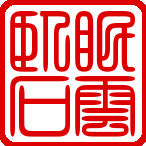Offering Matching Rhymes to Pi Rixiu’s Ten Songs on Tea
Lu Guimeng of the Tang dynasty
Offering Matching Rhymes to Pi Rixiu’s Ten Songs on Tea
陸龜蒙
奉和襲美茶具十詠
Tea Garden
The way to tea concealed, winding round in twists and turns,
A walk in the wild in countless circles.
Sunward, tea grows close and dense;
Shaded, small and sparse.
The women — entwined clouds of hair — languid.
The tea — piled into scent filled baskets — scant.
Where shall we gather?
Atop the cliffs on a dewy spring morning.
茶塢
茗地曲隈回
野行多繚繞
向陽就中密
背澗差還少
遙盤雲髻慢
亂簇香篝小
何處好幽期
滿岩春露曉
Teaist
The divinely endowed know the herb of immortality,
Naturally and simply.
Coming at leisure to the north side of the mountain,
Greeting the east wind.
After the Grain Rains, seeking the ephemeral fragrance
Among the clouds, high and far from the path;
Waiting for the call of the bird of spring
To enlighten me.
茶人
天賦識靈草
自然鍾野姿
閑來北山下
似與東風期
雨後探芳去
雲間幽路危
唯應報春鳥
得共斯人知
Tea Shoot
The bud embodies profound harmony;
Spring rouses the jade sprout.
As light mists infuse and refine essence,
The tender nub forms.
It seeks the purple haze of dawn,
Desires the warmth of red clouds.
Such beauty is hard to come by —
Like an upended basket never filled.
茶筍
所孕和氣深
時抽玉苕短
輕煙漸結華
嫩蘂初成管
尋來青靄曙
欲去紅雲煖
秀色自難逢
傾筐不曾滿
Tea Basket
The gold blade splits jade bamboo; strips
Woven into oblique ripples.
Made by the village elder,
Carried by the mountain maiden.
Yesterday, smoke stained and blistered;
Today, holding the morning’s green pickings.
Contending songs, teasing chants;
At eventide, returning home.
茶籝
金刀劈翠筠
織似波文斜
制作自野老
攜持伴山娃
昨日斗煙粒
今朝貯綠華
爭歌調笑曲
日暮方還家
Tea Hut
Wandering the mountain, searching for wood
To build a place in the foothills.
The gate bows by a bend in the stream,
The wall hugs the curve of the cliff.
In the morning, scattering with the birds,
In the evening, resting with the clouds.
Undaunted by the toil of picking,
Worrying only of fulfilling the tribute.
茶舍
旋取山上材
駕為山下屋
門因水勢斜
壁任岩隈曲
朝隨鳥俱散
暮與雲同宿
不憚採掇勞
隻憂官未足
Tea Stove
Without a chimney, it contains a light steam,
A mist reflecting the first rays of the sun.
Fill the cauldron with jade pure spring water to boil,
Fill the steamer with soft buds to cook.
The rare fragrance perpetuates the spring season;
The fair delicate hue, like the fall chrysanthemum.
Those tending the fire are like my disciples, of whom
Year after year I can never see enough.
茶竈
無突抱輕嵐
有煙映初旭
盈鍋玉泉沸
滿甑雲芽熟
奇香襲春桂
嫩色凌秋菊
煬者若吾徒
年年看不足
Tea Hearth
All around, pounding tea into pulp;
Dawn to dusk, slender wisps of smoke rise.
Square or round, tea molded into various shapes;
Arranged in order, layers dried in rotation,
High to low, like rounds of mountain songs.
After drying tea, the hearths return to daily use:
In truth, those tending the hearths
Usually dry preserved flowers.
茶焙
左右搗凝膏
朝昏布煙縷
方圓隨樣拍
次第依層取
山謠縱高下
火候還文武
見說焙前人
時時炙花脯
Tea Brazier
Fresh spring water tastes fine;
The old iron brazier looks foul.
How is a night of wind and snow endured
Without like-minded friends of mist and haze?
We once crossed below Red Rock
And rested among the fine tea at the mouth of Clear Stream.
Carelessly, we were offered a coarse turbid bitter brew…
Was there any need then to dispense with the wine?
茶鼎
新泉氣味良
古鐵形狀醜
那堪風雪夜
更值煙霞友
曾過赪石下
又住清溪口
且共薦皋盧
何勞傾斗酒
Tea Bowl
The ancients prized the bowl and stand
As a seductively expressive adornment.
But can it have the elegance of the jade tablet and disc
Or the delicacy of hazy mountain mists?
Perhaps to grace and enhance the bamboo mat,
To harmonize and refine the golden wine jar.
But to make a moral and superior gentleman?
This has never been known before.
茶甌
昔人謝塸埞
徒為妍詞飾
豈如珪璧姿
又有煙嵐色
光參筠席上
韻雅金罍側
直使於闐君
從來未嘗識
Tea Brewing
Sitting leisurely among the pines,
Watching the simmer of snow swept from their branches.
When the water roils,
Add the blue green powdered leaf.
Overflowing with lively essence,
Vanquishing malaise, such tea is
Unsuited to reading palace documents,
But proper to peeking at jade scrolls of the immortals.
煮茶
閑來松間坐
看煮松上雪
時於浪花裡
並下藍英末
傾余精爽健
忽似氛埃滅
不合別觀書
但宜窺玉札
Source
Lu Guimeng陸龜蒙 (?-881), “Fenghe Ximei chaju shiyong 奉和襲美茶具十詠 (Offering Matching Rhymes to Pi Rixiu’s Ten Songs on Tea)” in Cao Yin 曹寅 (1658-1712 A.D.) and Peng Dingqiu 彭定求 (1645-1719 A.D.) et al., comps, Quan Tangshi 全唐詩 (Complete Poetry of the Tang Dynasty, 1705), ch. 620, nos. 47-56.
Notes
Lu Guimeng wrote the poems in response to a set of ten tea poems by his friend Pi Rixiu 皮日休 (834-883 A.D.). For a translation of the original themes and poems of Pi Rixiu, see tsiosophy.com/2018/07/miscellaneous-rhymes-tea/

